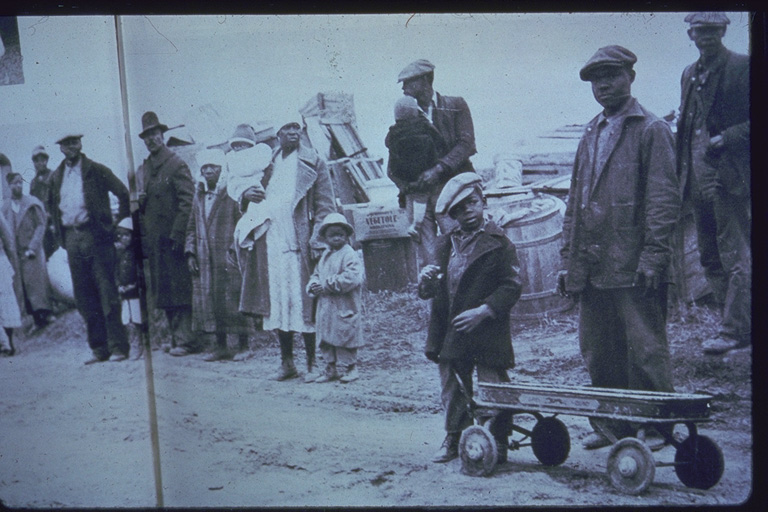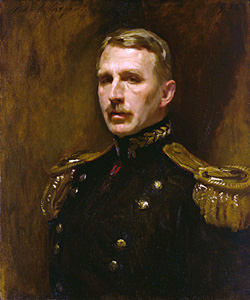In the popular imagination, at least in the workers of the North and West, the term of Abraham Lincoln was dominated by the Great War, which later mutated into the Finland Conflict. However, less recognized, but perhaps more important to the course of American history, was his policies of Reconstructing the South in the aftermath of the Civil War. He walked a fine line, between Gerrit Smith-type politicians that wanted a moderate stance on Reconstruction and Radical Republicans who wanted nothing short of full civil rights for the South.
Alas, despite temporary successes like the Freedman's Bureau (which only lasted for two years, 1864-1866), Reconstruction was definitively a failure for the Negro. For the white planter class who were and are the masters of the South and the Southern Negro, not so much. Thanks to the rise of Southern "Reedemer" governments, who had the help of unscrupulous figures like the First KKK, the Negro was gradually marginalized in the political sphere, eg. in suffrage. However, the real tragedy is how the so-called Radical Republicans failed to provide the Negro with any real economic base; thus, with few exceptions, the Southern Negro was forced into tenant farming systems that are not unlike the chattel slavery of old.
With the passage of the Reconstruction Amendments, the Negro was ostensibly given freedom, citizenship, equal protection under the law, and suffrage. At first, the Republican dominance of Congress ensured that these rights were preserved. Not only was the Negro allowed to vote, Negroes were able to and did serve in political office. 1,500 of them did so, in the state, federal, and local levels. But as always, it came at a cost. The Radical Republicans essentially suspended democracy in the South, banning former Confederates from holding political office outright and using coercive measures in order to ensure Republican governance in the Southern states.
Unsurprisingly, the Southern whites, both the rich who lost their "freedom" to keep slaves and the poor who resented the Negro for finally being "equal" to them, resented this. By the time Blaine was inaugurated, the power of the Republicans was steadily declining. Southern Democrats, one by one, were installed into office. In order to keep this new order as the new
status quo, the "Reedemer" governments disenfranchised the freedmen by enacting poll taxes, literacy tests, and grandfather clauses. In addition, they initiated Jim Crow Laws (named after a popular minstrel character) that restricted the rights of the Negro via
de jure segregation. Once again, the Negro was stripped of all political power whatsoever.
While the freedmen had to be stripped of political power, they never had any economic power in the first place. In order for that to have happened, the freedmen needed their individual plots of land, for which to grow their own crops, with surplus to sell to market. The most Radical of the Radical Republicans suggested confiscating the lands of former Confederates and slave owners and redistributing them among the Negro families. However, neither that nor giving the Negro family its own plot of land (how that would have happened without that redistribution scheme, one would have to use one's imagination) came to be. As a result, the Negro family ended up landless, in a environment that can be described as "worse than slavery." After all, under slavery, the Negro was under some sort of protection, even if it was cruel and self-centered. In the new system, however, the Negro was prey to whatever carnivores crossed his path, whether they be KKK militia or corrupt and racist government workers or random people who suspected that he was looking at a white woman for more than two seconds.
As a result, many blacks, as well as many poor whites, work for rich landowners under a system known as "sharecropping." Under sharecropping, a tenant would buy seed and equipment from the landowner, and would work the land; the landowner would get a "share" of the crop from the tenant when the crop is harvested. While in theory this is a reasonable practice, in reality most sharecroppers are now in debt bondage, forever tied to the land in a quasi-feudal existence. In effect, it is slavery in disguise. The gains made by the Negro during the Civil War and Reconstruction, in economic terms, have been minimal. It's no surprise, then, that the Negro is, in ever greater numbers, moving up North to work in the industries, where they are not welcomed with open arms but with fear, hostility, and racism. It's what gave the second KKK its great momentum, after all.
Such a shame this is! We, the United States of America, are the most advanced nation in the world! We have developed artificial ice, devices that can connect the opposite ends of the Earth, machines that can think on their own, and most recently, metal birds that grace the stratosphere. And yet the average Negro will never reach the stratosphere, and that's not just because of discrimination by all major American airliners. It's such a contradiction, that we fight against the Germans in the name of freedom and democracy, while we practice bondage and autocracy at home! And yet, this contradiction is nothing new. Both George Washington and Thomas Jefferson owned slaves; most of the Founding Fathers (John Adams being the notable exception) owned slaves as well. And they cited freedoms and natural rights in order to argue against British "tyranny!" And what about the Native Americans and how they have been systematically exterminated on both a population and a cultural level, similar to the Armenians in the twilight days of the Ottoman Empire, or the destruction of the Herero and Namaqua peoples in German Southwest Africa?
I end this essay with this excerpt from "An Essay Toward a History of the Black Man in the Great War," written by my mentor, W. E. B. DuBois:
OOC: Thank you RT for your words of encouragement. I don't usually post here, whether "here" be this thread or this forum, but I do read here very often, and with you inviting us to roleplay, I hope to use my knowledge to create updates like these every so often. It so helps that this kind of essay is very similar to one I did for the AP US History exam.
Also, while the essay writer is fictional, DuBois was a real person. Here's the link to DuBois' essay: https://archive.org/stream/EssayTowardAHistoryOfTheBlackManInTheGreatWar/190600-dubois-blackmaningreatwar#page/n3/mode/2up






 I think you might be covering
I think you might be covering 

 I was doing it on my tapatalk so I didn't have the luxury of al the smileys.
I was doing it on my tapatalk so I didn't have the luxury of al the smileys.





